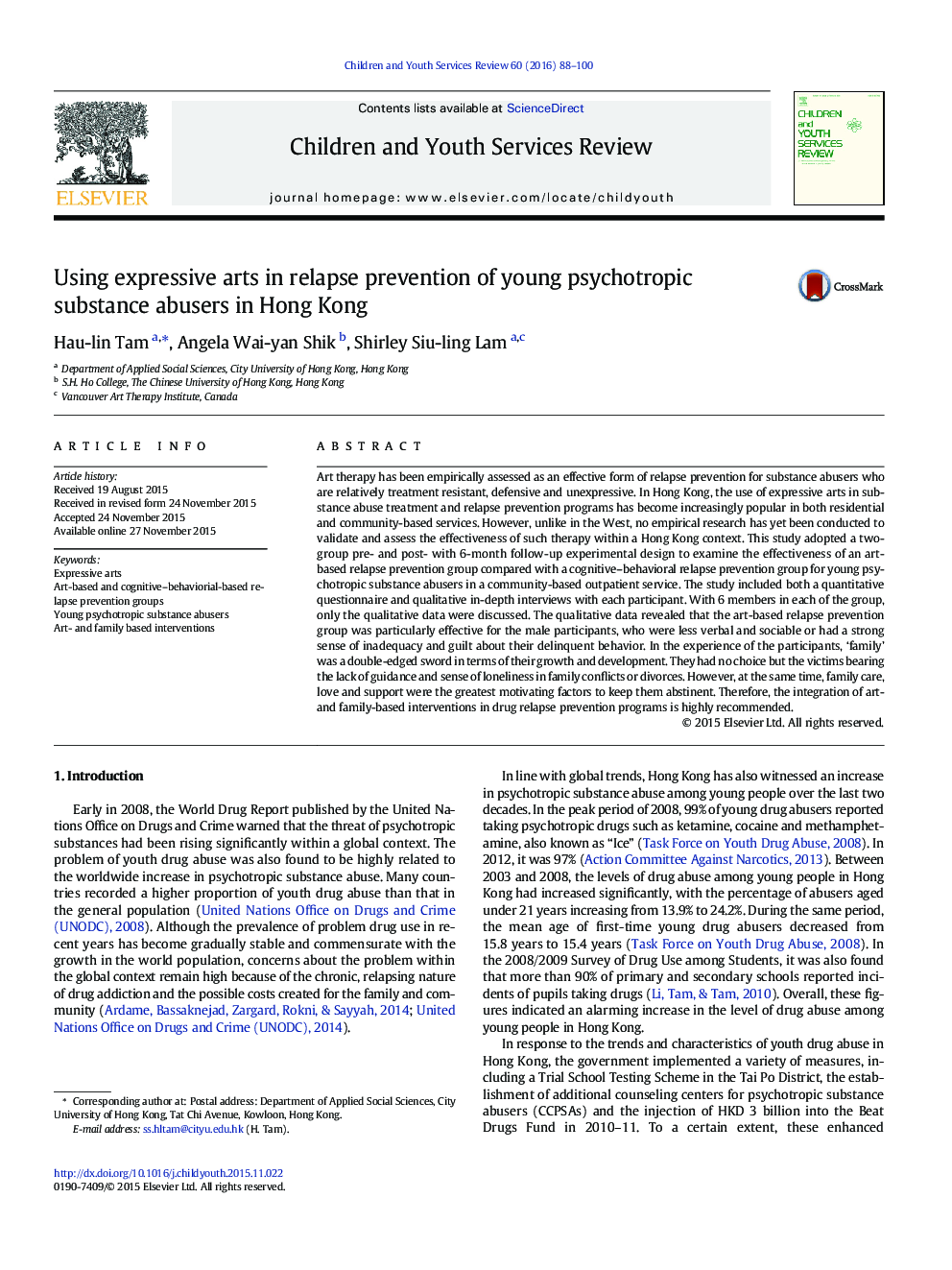| Article ID | Journal | Published Year | Pages | File Type |
|---|---|---|---|---|
| 6833862 | Children and Youth Services Review | 2016 | 13 Pages |
Abstract
Art therapy has been empirically assessed as an effective form of relapse prevention for substance abusers who are relatively treatment resistant, defensive and unexpressive. In Hong Kong, the use of expressive arts in substance abuse treatment and relapse prevention programs has become increasingly popular in both residential and community-based services. However, unlike in the West, no empirical research has yet been conducted to validate and assess the effectiveness of such therapy within a Hong Kong context. This study adopted a two-group pre- and post- with 6-month follow-up experimental design to examine the effectiveness of an art-based relapse prevention group compared with a cognitive-behavioral relapse prevention group for young psychotropic substance abusers in a community-based outpatient service. The study included both a quantitative questionnaire and qualitative in-depth interviews with each participant. With 6 members in each of the group, only the qualitative data were discussed. The qualitative data revealed that the art-based relapse prevention group was particularly effective for the male participants, who were less verbal and sociable or had a strong sense of inadequacy and guilt about their delinquent behavior. In the experience of the participants, 'family' was a double-edged sword in terms of their growth and development. They had no choice but the victims bearing the lack of guidance and sense of loneliness in family conflicts or divorces. However, at the same time, family care, love and support were the greatest motivating factors to keep them abstinent. Therefore, the integration of art- and family-based interventions in drug relapse prevention programs is highly recommended.
Related Topics
Health Sciences
Medicine and Dentistry
Perinatology, Pediatrics and Child Health
Authors
Hau-lin Tam, Angela Wai-yan Shik, Shirley Siu-ling Lam,
